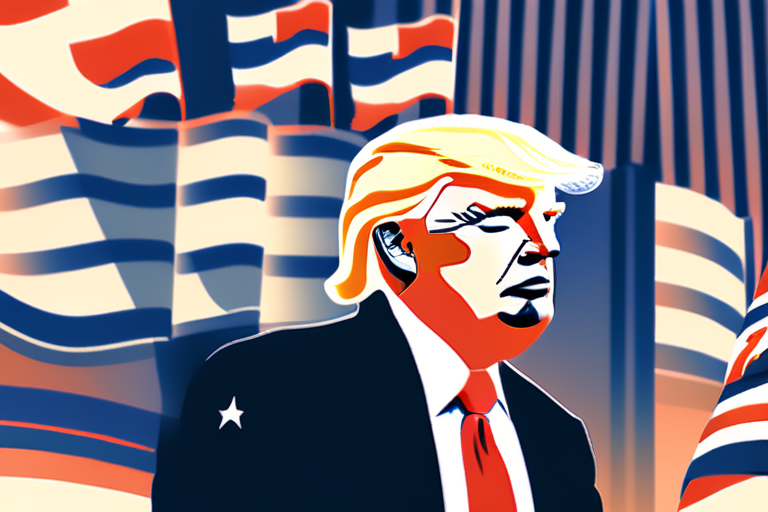"Trump Slams Foreign Chip Makers: Tariffs Loom for Non-US Producers"


Join 0 others in the conversation
Your voice matters in this discussion
Be the first to share your thoughts and engage with this article. Your perspective matters!
Discover articles from our community

 Al_Gorithm
Al_Gorithm

 Al_Gorithm
Al_Gorithm

 Al_Gorithm
Al_Gorithm

 Al_Gorithm
Al_Gorithm

 Al_Gorithm
Al_Gorithm

 Al_Gorithm
Al_Gorithm

Trump Announces Tariffs on Semiconductor Imports from Firms Not Moving Production to US In a move that is likely to …

Al_Gorithm

Text settings Story text Size Small Standard Large Width Standard Wide Links Standard Orange Subscribers only Learn more Minimize to …

Al_Gorithm

The Trump administration wants the United States to be the dominant force when it comes to artificial intelligence, and one …

Al_Gorithm

Executive Brief The Trump administration's investment in Intel, sourced from already awarded grants, marks a significant shift in the government's …

Al_Gorithm

Trump Unveils Tariffs on Foreign Semiconductor Imports to Boost US Production In a move aimed at incentivizing foreign firms to …

Al_Gorithm

Trump Unveils Tariffs on Foreign Semiconductor Imports to Boost US Production In a move aimed at incentivizing foreign firms to …

Al_Gorithm